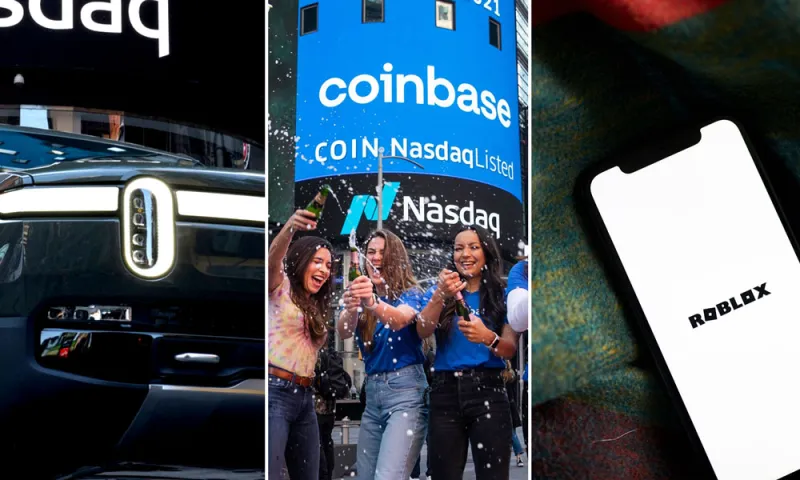Thanks to a surge in direct listings and mega-IPOs, including those led by Robinhood, Coinbase, and Roblox, 2021 has been one of the best years in the last decade for investors seeking to cash in on their successful funding bets.
According to data from Pitchbook, SoftBank has amassed $37.63 billion in exit stakes from the IPOs of China’s freight platform Full Truck Alliance and ride-hailing app Didi Global, as well as South Korea’s e-commerce company Coupang. Sequoia, meanwhile, held a combined $11.19 billion in exit stakes in 2021, including those in the Chinese vape-maker RELX Technology, the Brazilian fintech company Nubank, and the data-streaming platform Confluent. Other big winners in the IPO market this year include NEA (with a $9.32 billion exit stake), Index Ventures ($7.99 billion), Iconiq Capital ($5.56 billion), and Bessemer Venture Partners ($4.94 billion).
2021 was just as bountiful for crossover investors, who take positions in companies at various pre-IPO stages of the business cycle. Tiger Global, for example, which had investments in six of the 20 largest IPOs backed by venture capitalists in 2021, pocketed $11.35 billion from companies like Roblox, Coinbase, and Nubank, according to PitchBook. (Unlike traditional VCs, the New York-based alternative investment firm rarely takes board seats at its portfolio companies, leaving entrepreneurs more room to act on their own will.)
The global IPO activity in the first three quarters of 2021 has already surpassed the whole of 2020, according to Ernst & Young. A total of 1,635 companies went public from January to September 2021, compared with 1,363 in 2020 and 1,146 in 2019. When measured by deal value, the IPO activities in the first three quarters of 2021 reached $330.7 billion, up from $268 billion for the full year of 2020 and $208.3 billion in 2019.
Not all mega-IPOs have yielded happy returns, of course. Didi's share price, for example, dropped to $6.49 as of Friday’s closing, less than half its initial public offering price of $14 per share. The company said earlier this month that it would delist from the New York Stock Exchange and seek a listing in Hong Kong, after Chinese regulators announced crackdowns on internet companies based on data security concerns. As a result, SoftBank, which has $13.6 billion invested in the Uber-like app, saw its stock price tumble in late November.
“Several other companies that pulled off mega-IPOs, including Robinhood, Coupang and UiPath, have also lost significant value,” according to a PitchBook report. The data provider found that overall, VC-backed companies have underperformed against the S&P 500 since March, “which roughly coincided with the initial period of rising bond yields and inflation concerns.”
“This lackluster performance has led to a cooling off in the IPO market that has caused some new issuers to delay or downsize their IPO plans,” the report said. “When all is said and done, 2021 could represent a high point of the IPO market that may not be matched for years to come.”







